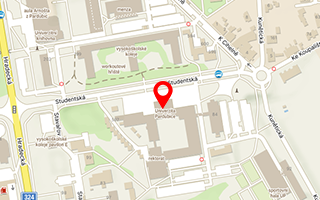| Study programme: | Transport Technology and Management |
| Form of study: | full-time, distance-study |
| Standard length of study: | 4 years |
Characteristics of the programme:
The study programme is designed to provide students with a theoretical and methodological basis of technology and traffic management. Attention is focused on the use of mathematical and other methods in traffic management and methods of scientific work. The aim of the study is to prepare knowledgeable professionals and scientists in the field of technology and management in transport (including postal and courier services) who will be able to analyze complex issues in the field, then based on their own scientific research in close context with application in practice to follow up the results of analyzes in order to design appropriate solutions and control systems. Increasing students' competencies in selected areas of transport and postal and courier services is ensured by offering compulsory elective courses focused on investment decision making, logistics systems, modeling of technological processes, data structures and algorithms, and security management.
An integral part of the study is an exchange programme or internship abroad or participation in an international creative project with results published or presented abroad and targeted language training. The fulfillment of the study objectives will enable to educate top experts and researchers and in the field of technology and management in transport. The graduates will gain the necessary competencies applicable at scientific workplaces and institutions, universities and other research and development workplaces.
Graduates of the doctoral study programme Technology and Management in Transport have a comprehensive set of knowledge and competencies that they use to analyze and solve complex issues in technology and management in transport. They are able to propose innovative solutions to these issues based on their own scientific activity, and to publish the results of their researchs at the international level. They are able to use information systems and information technologies in a wider range of activities. They build great teamwork habits in solving projects and research tasks. They are ready to engage in scientific activities both in academic community and in research organizations and research workplaces in the business sector. They have a very good knowledge of the interaction of theory and practice, the safety and sustainability of the proposed technical, technological and methodological solutions.

